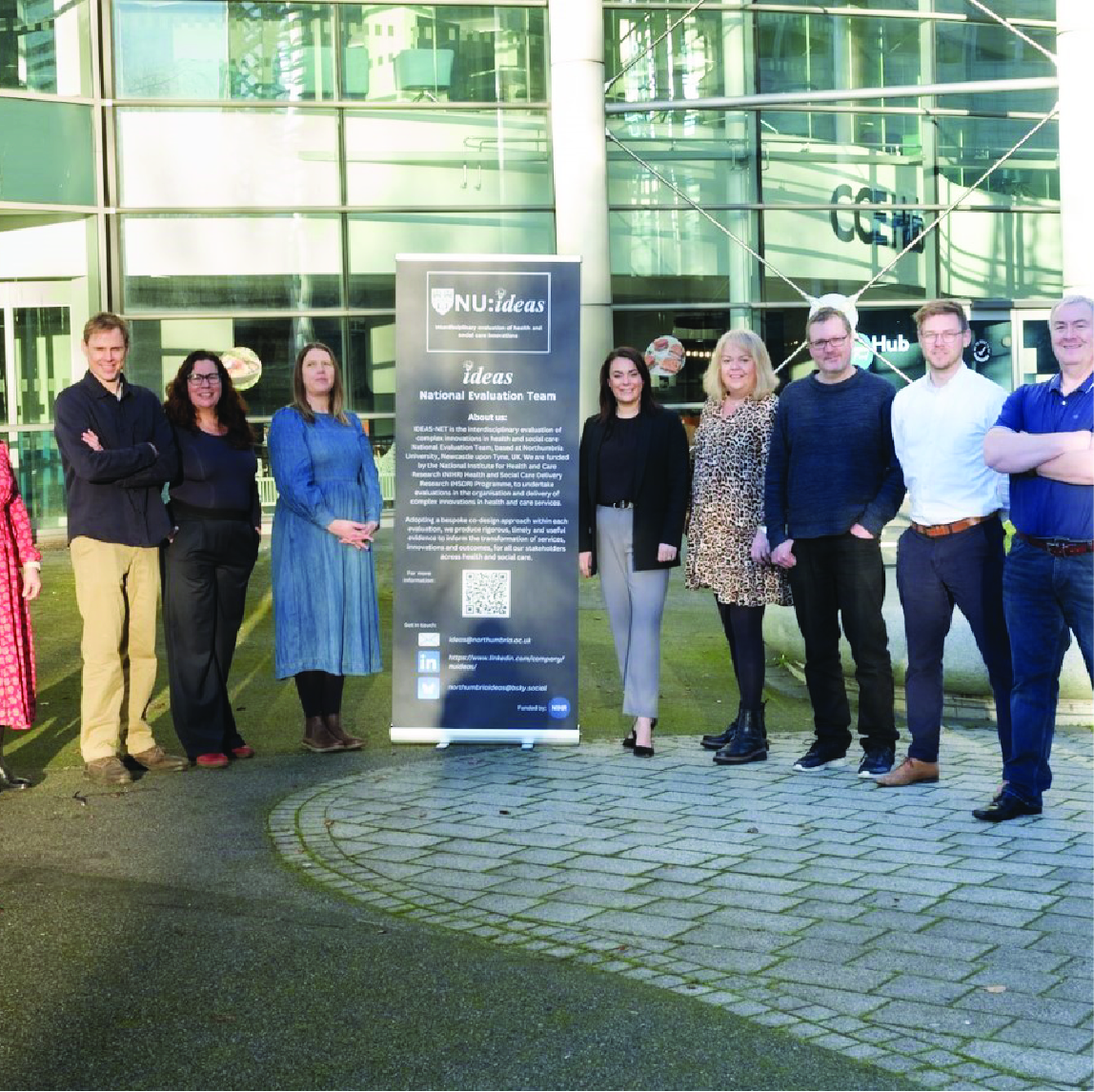-
Study
-
Quick Links
- Course Search
- Unlock Your Potential
- Still time to Apply
- Higher and Degree Apprenticeships
- Continuing Professional Development
- Still time to apply
-
Undergraduate
- Course Search
- Application Guides
- UCAS Exhibitions
- Foundation Years
- Fees and Funding
- School & College Outreach
- Information for Parents
-
Postgraduate
- Course Search
- Application Guide
- Postgraduate Research Degrees
- Flexible Learning
- Fees and Funding
- Change Direction
- Register your Interest
-
Student Life
- Students' Union
- The Hub - Student Blog
- Accommodation
- Northumbria Sport
- Support for Students
-
Experience Northumbria
- Open Days & Events
- Virtual Tours
- Campus Tours
- Life in Newcastle
-
-
International
International
Northumbria’s global footprint touches every continent across the world, through our global partnerships across 17 institutions in 10 countries, to our 277,000 strong alumni community and 150 recruitment partners – we prepare our students for the challenges of tomorrow. Discover more about how to join Northumbria’s global family or our partnerships.
View our Global Footprint-
Quick Links
- Course Search
- Undergraduate Study
- Postgraduate Study
- Information for Parents
- London Campus
- Northumbria Pathway
- Sign up for Information
-
International Students
- Information for Students
- International Events
- Application Guide
- Entry Requirements and Education Country Agents
- Global Offices
- English Requirements
- English Language Centre
- International student support
-
International Fees and Funding
- International Undergraduate Fees
- International Undergraduate Funding
- International Masters Fees
- International Masters Funding
- International Postgraduate Research Fees
- International Postgraduate Research Funding
-
International Partners
- Agent and Representative Network
- Global Partnerships
- Global Community
-
International Mobility
- Information for Northumbria Students
- Information for Incoming Exchange Students
-
-
Business
Business
The world is changing faster than ever before. The future is there to be won by organisations who find ways to turn today's possibilities into tomorrows competitive edge. In a connected world, collaboration can be the key to success.
More on our Business Services -
Research
Research
Northumbria is a research-rich, business-focused, professional university with a global reputation for academic quality. We conduct ground-breaking research that is responsive to the science & technology, health & well being, economic and social and arts & cultural needs for the communities
Discover more about our Research -
About Us
-
About Northumbria
- Our Strategy
- Our Staff
- Place and Partnerships
- Leadership & Governance
- Academic Departments
- University Services
- History of Northumbria
- Contact us
- Online Shop
-
-
Alumni
Alumni
Northumbria University is renowned for the calibre of its business-ready graduates. Our alumni network has over 246,000 graduates based in 178 countries worldwide in a range of sectors, our alumni are making a real impact on the world.
Our Alumni - Work For Us
What will I learn on this module?
This module will to introduce you to key concepts of corporate finance, theories and practice in a business environment. The module covers core aspects ranging from organisational goals, adding value to shareholders to raising finance. Specifically, you will study financial objectives of the corporation, shareholder vs. stakeholders interests, capital structure, decision-making and, the basics of mergers and acquisitions.
Responsible financial management is at the heart of business decision making. This includes how firms raise finance and the relationship between the business and its stakeholders. This module will develop your awareness of contemporary financial issues and academic literature surrounding such issues through a research rich approach to teaching. The module explores case studies alongside interactive lectures designed to develop analytical thinking skills. In addition, this will cultivate your business curiosity regarding commercial and professional activity in accounting, finance and economics. Lectures will be supported by seminars, which enable students to examine the cases and lecture topics in greater detail.
The module will engage you with reading and analysing key stories, cases and events in the business press over the last few years, particularly in the Financial Times (which you will have a free university subscription to). In addition, the module introduces you to the Newcastle Business School Trading Room, a high tech platform specialist software that gives you access to financial and market data and, global news and insights.
How will I learn on this module?
The module has a weekly one-hour lecture in which academic literature, financial concepts and business cases are introduced. Following the lectures, additional reading will be detailed in the teaching and learning plan and this can be accessed directly through an online reading list on the modules Blackboard site and through the Library website. Within the teaching and learning plan, you will also access weekly-directed multimedia support of appropriate accounting, finance and economics documentaries, series and movies.
You will have a weekly two-hour seminar. The weekly seminar will reinforce the concepts introduced in the preceding week’s lectures with real world news stories drawn from the Financial Times, Newcastle Business School Trading Room, business cases and other relevant examples of professional practice and appropriate research papers. You will be encouraged by your lecturer to engage in independent study using your FT.com subscription and the associated FT.com phone app to explore similar relevant financial stories occurring in the press at that time.
How will I be supported academically on this module?
The academics in the teaching team taking both the lectures and seminars will provide input and support. Lectures are recorded and made available to you through a variety of means including direct streaming and portable MP3 and MP4 files which you can download. This allows you to access and digest the lecture materials post-lecture at your own pace, to review and revise the lecture material on a variety of platforms and devices.
The seminars provide you with weekly opportunities for direct and interactive formative feedback on progress and understanding. At least one of the seminars will be dedicated to giving you a formative feedback on the requirements of the assignment and advice.
This module is supported with a site on the e-Learning Portal (Blackboard). This site contains the lecture materials, the lecture recordings and supplementary seminar materials. The site is also the launchpad for you to access a variety of e-Learning resources including videos, documentaries and radio broadcasts using the “Box of Broadcasts” Library service. In addition the site has instructions for how you access a Financial Times subscription news service, contains links to news clippings from the FT.com for you to access and read on a weekly basis, and has instructions on how you can download the FT.com app for a variety of mobile devices.
The modules online reading list can be reached through the e-Learning Portal. This list provides you links from which to access all of the modules eBooks, news resources and directed learning academic articles. The site also has a discussion board, on this board you are encouraged to post any interesting news articles relating to the module and the key concepts of finance as part of your learning and engagement on the module.
What will I be expected to read on this module?
All modules at Northumbria include a range of reading materials that students are expected to engage with. Online reading lists (provided after enrolment) give you access to your reading material for your modules. The Library works in partnership with your module tutors to ensure you have access to the material that you need.
What will I be expected to achieve?
Knowledge & Understanding:
• You will be able to come to reasonable judgement and evaluation of how corporate finance impacts shareholder wealth and stakeholder objectives using academic literature and theories. (MLO1)
Intellectual / Professional skills & abilities:
• You will be able to display developing reflection skills through exploring financial practice and real world financial decisions.(MLO2)
Personal Values Attributes (Global / Cultural awareness, Ethics, Curiosity) (PVA):
• You will develop your curiosity of dilemmas that responsible businesses face when making financial decisions. (MLO3)
How will I be assessed?
Formative assessment:
You will receive weekly formative feedback throughout the module on different topics covered from the teaching team both on an individual basis and as part of your team.
Summative assessment:
The module will be 100% assessed through the completion of an assignment (2,500 words) that demonstrates an understanding of shareholder wealth maximisation, from a financial decision-making perspective, using real world examples. This covers all of the module learning outcomes.
(MLO1, MLO2 and MLO3)
Pre-requisite(s)
None
Co-requisite(s)
None
Module abstract
Responsible financial management is at the heart of business decision making. How should we raise the money? How much should we spend? How do we add value to shareholders and stakeholders? These are all important corporate finance questions. This module takes an analytic and practical approach to your learning, with you developing a greater awareness key of financial topics. You will engage with financial news stories from the Financial Times or Bloomberg Professional Service and apply your learning from the module to them and learn how to utilise the Newcastle Business School Trading Room. This module will introduce you to academic literature surrounding corporate finance and help you develop an awareness of contemporary financial issues, enabling you to build your finance awareness and curiosity.
Course info
UCAS Code N775
Credits 20
Level of Study Undergraduate
Mode of Study 1 year Full Time followed by a further 3 years Full Time or 4 years with a placement (sandwich)/study abroad
Department Newcastle Business School
Location City Campus, Northumbria University
City Newcastle
Start September 2025 or September 2026
All information is accurate at the time of sharing.
Full time Courses are primarily delivered via on-campus face to face learning but could include elements of online learning. Most courses run as planned and as promoted on our website and via our marketing materials, but if there are any substantial changes (as determined by the Competition and Markets Authority) to a course or there is the potential that course may be withdrawn, we will notify all affected applicants as soon as possible with advice and guidance regarding their options. It is also important to be aware that optional modules listed on course pages may be subject to change depending on uptake numbers each year.
Contact time is subject to increase or decrease in line with possible restrictions imposed by the government or the University in the interest of maintaining the health and safety and wellbeing of students, staff, and visitors if this is deemed necessary in future.
Useful Links
Find out about our distinctive approach at
www.northumbria.ac.uk/exp
Admissions Terms and Conditions
northumbria.ac.uk/terms
Fees and Funding
northumbria.ac.uk/fees
Admissions Policy
northumbria.ac.uk/adpolicy
Admissions Complaints Policy
northumbria.ac.uk/complaints









